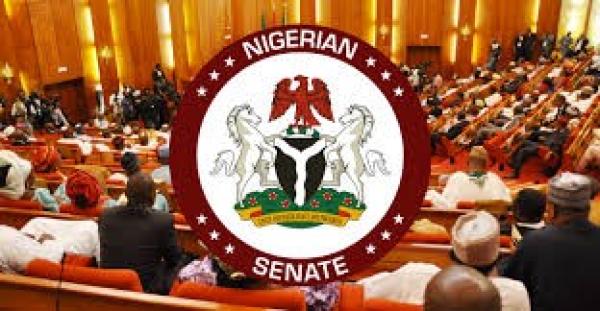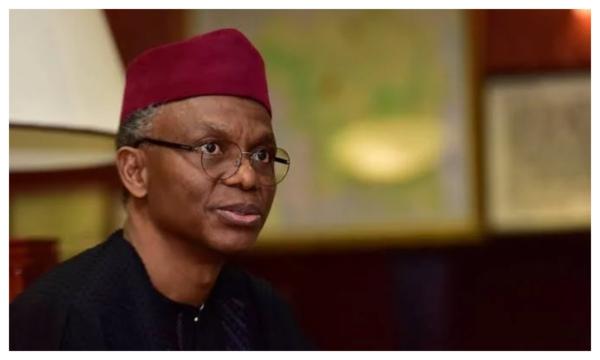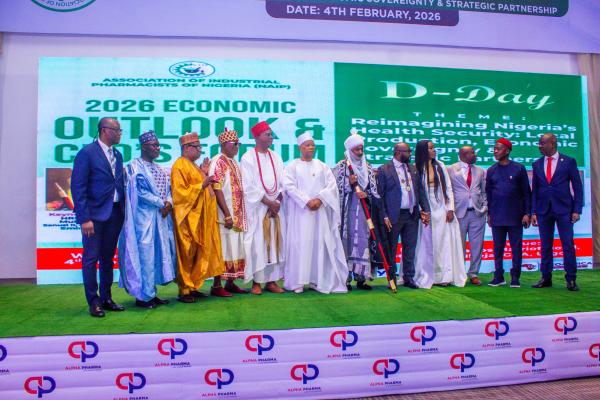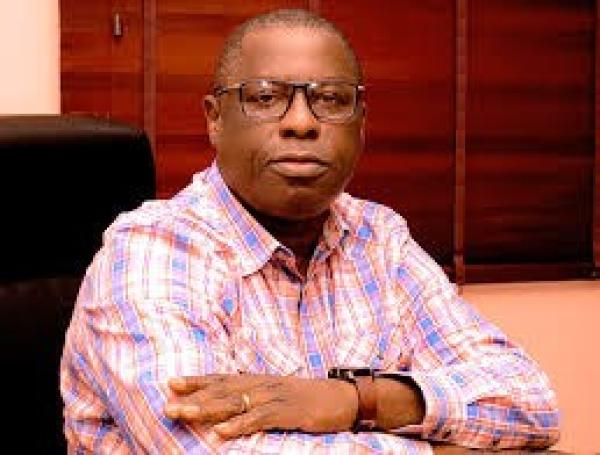
How Nigeria Loses $11 Billion Annually To Oil Theft
Investment Decisions Delayed
Mr. Moritz Abazie, Managing Director and Chief Executive Officer of Port Harcourt-based Strides Energy and Maritime Limited, an offshore oil and gas services company, in this interview with MARCEL MBAMALU, speaks very passionately about Nigeria’s oil and gas sector and the need to quickly pass the Petroleum Industry Bill (PIB) into law.
In your opinion is the Nigerian oil and gas industry actually growing and why?
The Nigerian oil and gas industry is not growing; incidentally, the country has an ambitious target of achieving four million barrels of production per day by 2020. Talking about growing local content, yes we are doing well, this is, however, one dimension to it; the industry, as a whole, is bogged down by myriads of problems that must be resolved to set it on the path of growth.
The Petroleum Industry Bill (PIB) is fundamental to the growth question. Presently, many investment decisions by major operators are on hold and projects are being delayed. Exploration spend is very low and so reserves are not growing as required. Rig counts are also very low, all pointing at reduced activities in the industry. A lot of these are tied to the non-passage of the PIB, which creates an atmosphere of uncertainty. The PIB is expected to resolve governance issues for the industry among other things. We also have the oil theft challenge, which has grown to a crisis situation. This is despite the amnesty programme. Again, the PIB provides for equity participation of the host communities, which gives them an incentive and responsibility to protect the oil and gas infrastructures in their communities; this is why we think that the PIB should be put to test.
The state of the PIB is currently a challenge for the oil and gas sector; from an industry player’s perspective, what would you say are the impediments to passing the bill into law?
The situation is that there are arguments for and against various aspects of the bill, the areas that seek to review the fiscal terms of engagement is generating lots of controversy for obvious reason, but there are non controversial and equally important provisions, like the aspect that deals with the establishment of clearer governance structure for the industry. Some people believe that, probably, the bill should be unbundled so that these non-controversial provisions can be passed while we are tinkering with the rest to enable the industry start reaping the benefits of the bill in part.
My contribution to this is that we have argued over this bill for too long and there is no perfect law. The PIB needs to be passed and put to test, amendments can be made in future according to lessons to be derived from its implementation.
Do you see the PIB getting passed into law before the expiration of this dispensation?
This question is best answered by the National Assembly; every other opinion belongs to the realm of speculations.
Some stakeholders say the Nigerian content Act, to a large extent, is being abused in the industry. Do you share this sentiment?
The Nigerian content act is a success story; it is also a work in progress. There is room for improvement in its implementation. The most widely abused part of the Act is the area of expatriate quota and employment of Nigerian human resources. Some of the multinationals in the industry are still deploying more expatriate personnel than what the Act permits, at the expense of local employment opportunities for Nigerians.
What is more worrisome is the fact that, in some cases, the expatriates are employed for jobs that can be carried out by Nigerians, and these expatriates are, of course, better remunerated than their Nigerian counterparts, who are, in some cases, better qualified.
Recently some of these multinationals have come under the hammer of NCDMB for these abuses. Hyundai Heavy Industries (HHI) and Saipem were banned by NCDMB from participating in tendering processes in the industry. If NCDMB can strengthen its investigation and enforcement machinery, it will succeed in this area as well.
Another area that requires improvement is crude oil lifting. It is necessary for the government to support local players in acquiring the vessel capacity to qualify them to transport Nigerian crude, because a lot of capital flight is taking place through this area.
The International Oil Companies (IOCs) are currently divesting from their assets in Nigeria. Do you think this is healthy for the industry?
Asset portfolio restructuring is part of the industry dynamics. Acquisitions and divestments are business decisions taken for strategic reasons. The big IOCs are better off in the deep offshore, because they have the exclusive technical and financial capacity to deal with the higher challenges it entails; the rewards are equally commensurate with the elevated level of challenges and risk. There is zero competition from local players and less community challenges as well. The local content objective also benefits from the opportunity for indigenous firms to acquire and operate assets released by the IOCs. These assets, in some cases, are better operated by the local firms, who are better placed to manage community relations for instance.
You may recall that, before now, the IOCs were being encouraged to relinquish unused acreages and they were reluctant to do that, hence limiting opportunities for new investments. The divestment is not a problem. What we need to deal with is the PIB. If it is properly handled, the IOCs will concentrate in the deep offshore where they have competitive advantage, while the local players will operate the onshore and swamp assets more profitably.
Oil theft is seriously impeding growth of the sector. How do you think this menace could be addressed, especially in the waterways?
The issue of oil theft in Nigerian has no doubt reached a crisis level, and I agree with the minister for Petroleum resources, who, in a recent statement, described the menace as being multifaceted and complex. The co-operation of all stakeholders, including the international community, is required in solving the problem.
Available records indicate that the country loses about $11 billion annually to oil theft. This is more than the total individual oil revenues of most oil producing countries in the world. There are other consequential costs of this to the nation, including environmental degradation arising from pipeline vandalization and oil spill; the illegal refineries constitute environmental health hazards. The money derived from these activities goes into funding illegal activities such as terrorism and other forms of violent crime and arms conflict. The losses discourage investment in exploration and production, even making it more expensive.
The nation’s security architecture, as composed presently, has failed in dealing with this challenge. Some people talk about lack of political will to which I disagree; no government, in all rational sense, can lack the political will to deal with a problem that constitutes such level of threat to its stability. The right strategic mix should be crafted and correctly executed. This will require the active support of all stakeholders some of which should be incentivised.
Starting from the home front, the host communities should have an incentive for protecting the oil and gas infrastructure in their communities, there should also be consequences for failure; the PIB covered this much. There have been allegations of collaboration between bunkerers and security personnel deployed to protect the pipe lines, those allegations should be properly looked into.
At the international level, these stolen crude are sold and refined in the international community by established institutions that are traceable; fund is moved around international banks. This is criminal, and it is possible to disrupt the flow with the co-operation of the international community. The vessels that transport stolen crude are registered vessels and should be impounded wherever they are found. Crude oil has identity so the refineries can easily confirm or trace the source of every consignment delivered to them; not doing that should be criminalised. The G-8 made a pledge since 2000 to help Nigeria fight this menace by disrupting the trade at the international level, it is in the interest of the global community to stand up to this because the resources derived from it could be funding terrorism.
Do you think Nigeria has the requisite manpower to develop its oil and gas sector, given the call for more local participation?
The oil and gas industry has been active in Nigeria for over 50 years; we should be exporting skilled manpower in this area to other countries of the world by now given the size of our population. So, yes, we have the manpower and we have high level of unemployed youths, who are trainable to make up for any shortfall that might exist. That is why the Nigerian content Act is a welcome development because it encourages the training and use of local personnel. We cannot leave our youths in the labour market and go about importing expatriates to the detriment of our economic and social stability. Unemployment, in itself, is a national security risk.
What are the major challenges confronting players like you in the Industry?
The three key factors critical to the oil and gas industry play are finance, technology and expertise. To be competitive, players need unhindered access to finance at the right cost. There have been some improvements in the Nigerian financial market over time in providing financial support, but the cost is astronomical and the capacity for high-stake funding is also very limited. Technology and expertise are things that are continuously evolving and never enough; so, training, collaboration or partnership with international players are key to success.
As an oil servicing company, how can the country leverage new technology to boost hydrocarbon production?
The oil and gas industry is heavily dependent on high technology, that is why it is not a massive employer of labour. Over time, the industry has been moving into more challenging, harsh and difficult environments to find the hydrocarbon requirement for meeting the growing global appetite for energy. Technology is continuously being evolved to deal with this situation and to improve recovery even in the older fields.
Investment in research and development need to be emphasized, besides that we recognize the need to partner with players from the more advanced countries with advanced technology which can be leveraged upon to optimise our performance.
How does your company intend to impact the petroleum industry given the enormous expectations of Nigerians?
The vision of Strides is to be the leading asset solutions provider acknowledged by all stakeholders in the African offshore oil and gas construction market. We are specialized in the offshore sector so we own and operate offshore construction assets ranging from pipelay barges to dredging vessels and other support assets.
The medium-term goal of Strides Energy is asset expansion, in an attempt to grow capacity according to the objectives of the local content Act. In doing this, training and development of local expertise for the management and operation of these assets is critical, and we are addressing that.






















